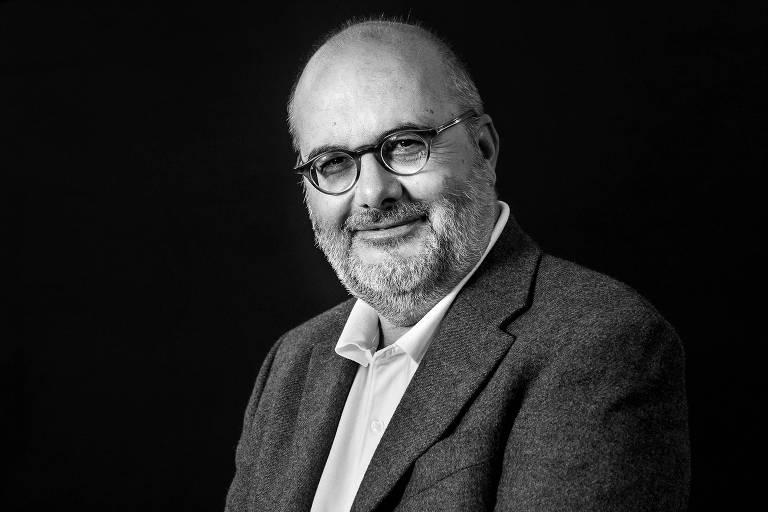Branko Milanovic
One of the leading experts on global inequality, economist Branko Milanovic says the shrinking middle class in countries like the US leads to the rise of populist leaders and endangers sustainable growth in the world.
"We are voting against because we are unhappy," he said.

Branko Milanovic, Serbian-American economist and professor at New York City University, author of "Global Inequality"; was chief economist of the World Bank's Research Department for two decades
From the outside, the world seems less and less unequal, with the income of rich and poor countries converging. Internally, however, inequality has been increasing, squeezing the middle class. What is the consequence of this?
There is indeed a significant improvement among the poorer classes in emerging countries, especially in Asia. China attracts much attention, but this trend also occurs in India, Thailand, Cambodia and Vietnam.
These countries have a reasonably well-educated workforce capable of doing what can be done in the West but at a much lower cost.
So it is normal, especially if you have the technological ability to move your production to these countries, that you prefer people to be working there than in Sweden, the US or France because you will make more money.
Hence the reason why the middle class is being squeezed. It is globalization plus technological advancement working together. But it is an illusion to believe that it is possible to isolate how much of this is due to globalization and technological change because globalization is the frame where technological change takes place.
There's also pressure from the top the wealthiest 1%, 5% or even 20% at the top of the pyramid. These are people who can do very well in globalization, who are not competing with those in China or elsewhere -people who somehow benefit from having a cheaper workforce in these countries.
So we have a paradoxical situation. The interests of the poor world and the rich world are aligning against the middle class in rich countries.
Unlike money, which moves freely around the world, there is a clear limit to immigration. Is it possible to tackle inequality only with taxation on capital, which is mobile?
Governments have become powerless to do much, particularly to impose capital taxes.
We know good quotes from Adam Smith (1723-1790) saying basically that a person who owns capital is not a citizen of his home country, he is a citizen of the world because you can move it wherever you want.
And this is now also true for highly skilled labor.
You can do a lot of work in many places in the world today. As a result, national governments are not able to easily levy taxes on these people. It is a tough situation for the welfare state under the conditions of globalization because people who have money capital or very specialized skill sets actually leave these countries and go elsewhere.
And, as you know, many countries would be happy to receive them because they bring the purchasing power, money and all that.
The irony here is that while rich countries in the West benefit from the influx of skilled labor from poor countries, they are not happy to receive more foreigners. That's why they close the border.
The consequence seems to be a middle-class retaliation when it votes for governments and populist leaders, doesn't it?
It is true. And it is common for people to ask what is the program for the middle classes, how could they change. The fact is that there is no coherent program.
So much of this voting is what it used to be, and still is, the so-called protest vote. In other words, we are voting against and largely because we are unhappy.
Now, what promises do people like Donald Trump make? There are two types of promises.
On the one hand, they promise to change globalization. In Trump's case, the promise is to go to a trade war with China, to bring those jobs back to the US, which, of course, is impossible. Jobs are gone and will not return.
But at least there is rhetoric; there is some use of political force to possibly force China to change intellectual property rights, the use of foreign technology, perhaps to increase soy imports and things like that.
On the other hand, there is the promise of improved national distribution. Because so far, we have seen the reaction against China and globalization. However, there is minimal political reaction in terms of measures to reduce internal inequality.
There are comings and goings of politicians. There is, for example, [American Democratic Representative] Alexandria Ocasio-Cortez, who speaks at 70% rates for the wealthy or [Democratic Senator] Bernie Sanders.
The irony is that today we see this wing of the American political spectrum more to the left than in any other nation in the West. We are used to seeing the US more to the right than, say, Sweden, or Germany. Ironically, there is a "socialist" segment in the US.
What is the consequence of deepening inequalities for sustainable economic growth?
That's the big question. The usual argument was that it would take a very strong middle class not only to maintain democracy but to create a group of people with the same consumption pattern to generate mass production.
The danger of making the middle class disappear is that the growth engine will have to change. It does not mean that there will be no growth, but that there will be a very different kind of growth.
Another issue is that the higher the inequality, the smaller the share of wealthy people interested in public services because they can afford better quality private services such as schools, transportation and health.
In a polarized and unequal society, will social insurance be possible, and by definition, does social security include everyone? Because if social insurance is only for people who have no money or are out of work, who will pay for it?
The rich rightfully then think that if they use nothing from the state because they pay for private services, they should not pay for public services.
Therefore, we realize that there are immense problems ahead: First, the welfare state; second, the kind of growth we are experiencing; and third, democracy.
This is not a joke. These are serious questions that will have no consequences in six months, but 10 or 20 years from now.

